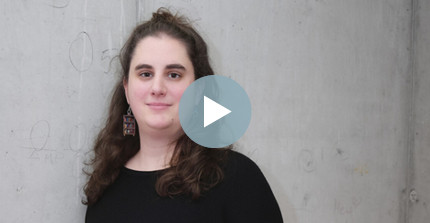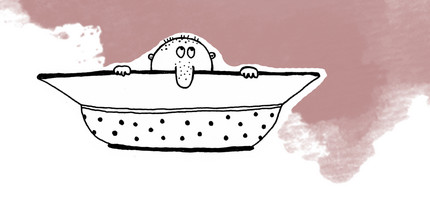Public Relations
For commercial purposes or for the greater good - all organisations and companies are dependent on not only their customers and clients, but also employees and stakeholders trusting and believing in what they do and that they do it to the best of their ability. Guaranteeing a favorable reputation in the public eye, as well as keeping one's own work in mind, is the PR management's job.
Different examples of damaged reputations come to mind quickly: Politicians accused of embezzling money, care institutions abusing those entrusted to them or car manufacturers disregarding environmental regulations. When these moments of misbehavior are caught in the public eye, they can destroy trust that has been built over years.
In order to even establish a good reputation within relevant target audiences, companies and organisations of all sorts must communicate with and inform them about their offers, services and goals - regardless of whether they're students, a theater audience or potential donors and customers. So, PR always encompasses the conscious design of communicative relationships between organisations/firms and their groups of interest. Usually, this also involves competing with other parties with similar goals, meaning that one's own doing and its value must be visible as a "unique selling point". On a competitive market, it is important to emphasize what one can offer that no one else can.
Public relations (PR) managers work in press and public relations departments developing communication processes that enhance the image of companies and other institutions, building a positive narrative surrounding their employer's history, strategic action and longterm ideas. After a prior analysis of the initial and target situation, public relations managers position the organization/company in the public sphere in a manner appropriate to the situation. For this purpose, they utilize communication channels such as press releases, blogs or social media. Over time, it is crucial to maintain this image, remain relevant and proactively minimize possible communicative risks. Unlike marketing, PR is focused on the general perception and basic reputation - irrespective of specific goals such as the promotion of an event or the distribution of a specific product. PR demands longterm work and investment in future plans, although it obviously also always has to contribute to the achievement of current goals. Thus, PR and marketing go hand in hand.
High responsibility and interdisciplinary tasks
Since image is a very complex construct, PR work correlates with numerous other areas such as strategy and planning, customer service or quality management. Also, it isn't limited to external action, but also includes internal efforts because employee satisfaction fundamentally shapes how a company is viewed in the public eye. Therefore, PR is a longterm job located at the crossroads of multiple aspects of management, coordinated by specialized PR departments. Due to these diverse intersections, job advertisements can be found under various titles, such as PR officer, communications manager, corporate or internal communications or campaign manager. Furthermore, it is worth taking related occupational fields such as company communication, campaigning or social media management into consideration.
PR work applies to various industries and can be executed internally, by an external PR agency or as a freelance communications consultant.
In addition to an affinity for texts and the media, practical experience from part-time jobs, internships or volunteering are particularly important for embarking on this career path. It is important to possess knowledge of an employer's relevant stakeholders, build networks and stay in contact with relevant memebers of the press. Those interested in this field should also be confident, open and unafraid of public presentations - including those in radio and television. The willingness to lead conflicts is also essential, since one must be prepared to represent one's communicative strategy internally, but also face the public and represent the employer during a crisis. Since most of today's communication takes place online, experience in dealing with the various social media channels and knowledge of photo editing, content management systems, video production, etc. are usually required as well. Foreign language skills are necessary in an international realm.


